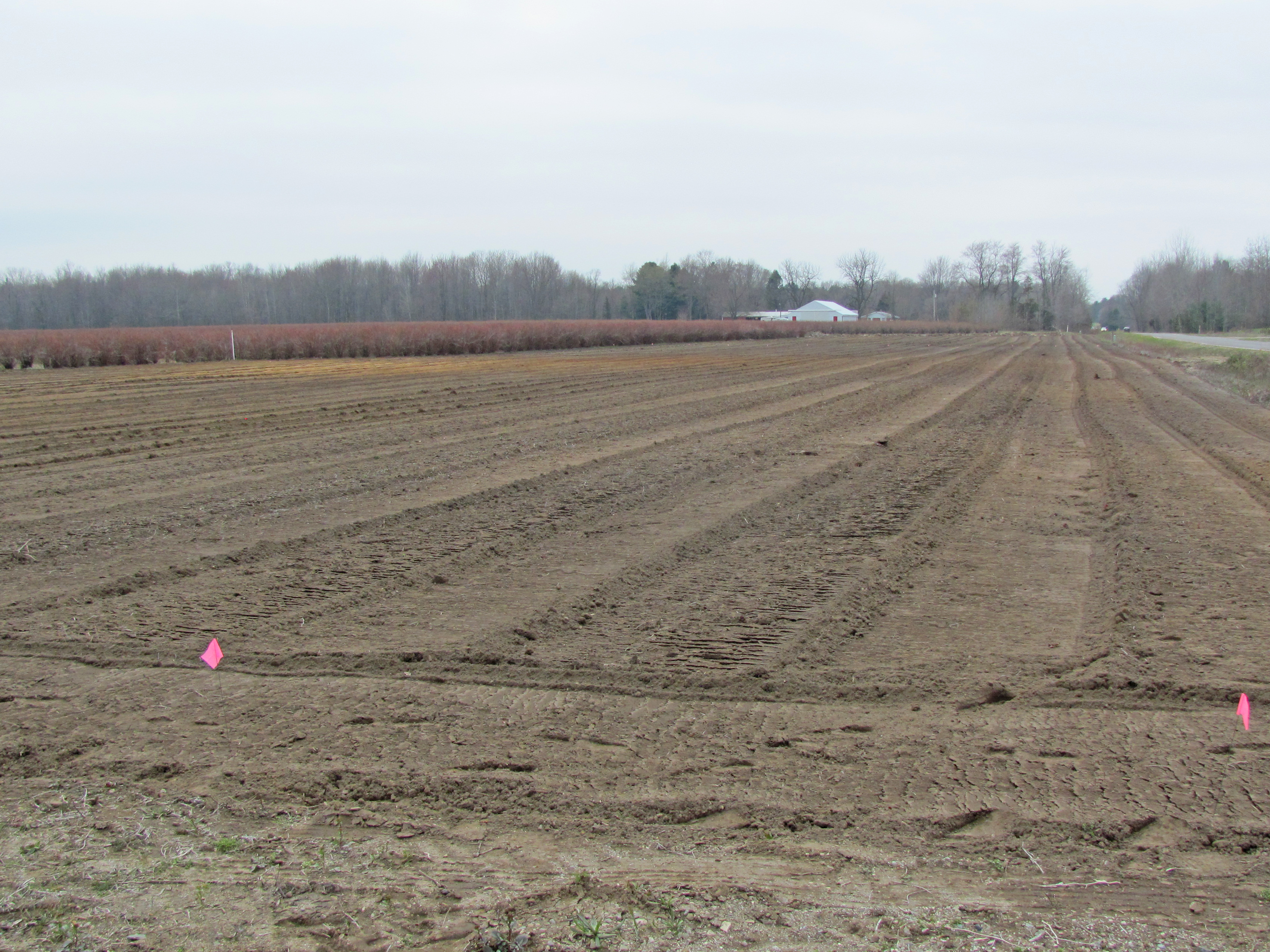West central Michigan small fruit update – April 28, 2020
Lower than normal temperatures are delaying small fruit crop growth and development. Blueberries are still in the bud burst stage and strawberries and raspberries are showing the first leaves coming out of the crown.

Environmental conditions in west central Michigan have remained unchanged for the past seven days, and cool and dry conditions have prevailed. Minimum temperatures averaged 34 degrees Fahrenheit and the maximum temperatures averaged 53 F. Precipitation registered during the same period was minimal, less than 0.5 inch. South Allegan and Van Buren counties received the largest amount of rain, but it amounted to only 0.49 inch. Despite these low temperature conditions, no freeze/frost damage has been reported. However, plant development has been delayed for almost two weeks in comparison to the normal conditions.
Blueberries remain in the bud burst stage. Varieties like Duke, Bluecrop, Draper and Legacy are the most advanced. Jersey and Elliott still are in the bud swell stage, but they will advance quickly as soon as daily temperatures start warming up.
Strawberries, on the other hand, started showing the first leaves coming out of the crown. However, prevailing low temperatures are delaying their growth and development.
Summer raspberries are developing the first leaves and shoots from the crown. A good amount of foliage is already present. However, fall raspberries still are dormant (Photo 1).
So far, most insect and disease problems in small fruit crops are related to fruit rots in blueberries and infestations of blueberry stem gall wasp. Fields with a history of mummy berry infestations and with mummified fruits in the ground need to be inspected for apothecia. After the light rain from past few days, mummies may start germination and apothecia-releasing mummy berry spores. Thus, fungicide applications are needed at this time to prevent shoot strike and fruit infections. Please consult the 2020 Michigan Fruit Management Guide (Michigan State University Extension Bulletin E0154) for recommended fungicides and doses. You may also call your local MSU Extension office for further assistance.
Blueberry stem gall wasp infestations continue moving to new fields all over west central Michigan. Jersey fields and others planted with susceptible varieties like Bluejay remain at risk of gall wasp infestations. Even some varieties like Duke that have shown some degree of resistance to blueberry stem gall wasp are slightly infested under conditions of high gall wasp pressure when planted near a susceptible variety. Some growers are already taking drastic measures to combat this insect pest by removing fields planted with susceptible varieties, mainly old Jersey fields (Photo 2).

Mark your calendars for pre-bloom blueberry webinar on May 12
MSU Extension is hosting a pre-bloom blueberry webinar on Tuesday, May 12, 2020, from 1-4 p.m. with updates on issues related to the early portion of the blueberry season. This webinar will deliver information on research and Extension subjects of interest for Michigan’s small fruit industry during the 2020 blueberry pre-bloom and bloom period. Growers participating in this webinar will be awarded three RUP credits for the renewal of the Private Pesticide Applicator license.
There is no cost for attending the webinar. However, you will need to register online to access the meeting. The meeting will be held using Zoom and after registration you will be sent information on how to access the webinar. A link for online registration will be provide soon.



 Print
Print Email
Email
